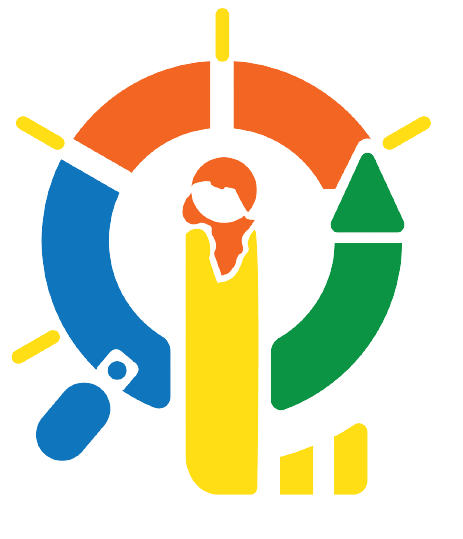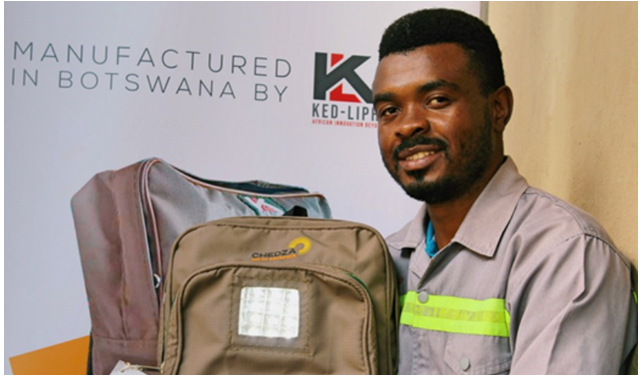About the project
According to the International Energy Agency, 600 million people in Africa lack access to electricity, most of them in sub-Saharan Africa. In Botswana, with a population of 2.5 million, access to electricity stood at 72 per cent in 2020, according to the World Bank. Sustainable Energy for all points out that the country has reached 77 per cent electricity access for the urban population, while in rural areas is still limited to 37 per cent, although increasing. It is observed that lack of electricity is a major hindrance for many people in Africa. The challenge of lack of electricity greatly affects school going children. The impact include: reduced hours of study, difficulties in completing homework, revising for exams and other curriculum activities which are to be done at home and mostly in the evening.
Chedza Solar Backpack contributes to addressing this challenge by providing the solar-powered invention which is a compact backpack, made from durable, waterproof canvas, and includes an integrated solar panel which absorbs and stores sunlight during the day for use later at night. The solar backpack charges small gadgets that school children in rural areas can use to access educational material online, and in the process advance digital learning. It is observed that Chedza solar backpacks provides a sustainable solution that utilizes renewable energy and eco-friendly materials. The Chedza Solar Backpack, equipped with a built-in solar panel, revolutionizes Botswana and beyond. It provides reliable power and lighting in areas with limited electricity access, benefiting students and enabling the completion of homework. By harnessing solar energy, it contributes to a cleaner environment by reducing dependence on fossil fuels and greenhouse gas emissions.
Key benefits derived from Chedza Solar Backpacks
include:
- Provides
access to electricity from the solar backpacks.
- Supporting
students who lack access to electricity at home to charge their devices
and complete schoolwork in rural areas.
- Offers
training to rural communities about environmental awareness and skills
development.
- Provides
a renewable energy source by harnessing solar energy
- Reduces
dependence on fossil fuels, minimizes carbon emissions, hence contributing
to a cleaner environment
- Uses
sustainable materials that can be recycled and are long-lasting
- Creates
jobs for people in communities, especially youth
- Creates
economic opportunities in Botswana by enabling small business owners to utilize
its power capabilities
- Facilitates
transactions and the way entrepreneurs conduct business in areas without
reliable electricity access.
- Contributes to UN Sustainable development goals: SDG7, SDG4, SDG10,SDG13,SDG17,SDG1 &SDG2
This innovation is already in the market. The founder’s business model incorporates two revenue streams. First, they collaborate with NGOs, corporations, foundations, and governments to manufacture and co-brand backpacks for donation to students in African communities. Second, they operate a retail store that sells backpacks to tourists, hikers, and campers while also offering repair services and component resale. With confirmed interest from potential customers and a growing customer base, their market includes both local and export markets. Their innovative product addresses the energy needs of over 60% of Africans, providing an affordable energy source to students and individuals affected by power outages like load shedding in South Africa.
Mr. Kedumetse Liphi is a 32-year electronic engineer graduate from Botswana. His inspiration to innovate (solar invention) was sparked by an encounter with a poor student on his way home. “One day while driving around I came across a student who was using rice packaging for a schoolbag. We offered the child a ride home, where we discovered that their household was living below the poverty bracket,” said Mr. Liphi. For Mr. Liphi, the chance meeting with the student, and the fact that Botswana is endowed with over 3,000 of sunshine annually, according to global solar data agency; Solargis.com, prompted him to create a pioneering solar backpack brand dubbed ‘Chedza,’ which means light in English.
Origin Research and Innovation Labs Africa appreciates our youth in driving innovation in Africa!






